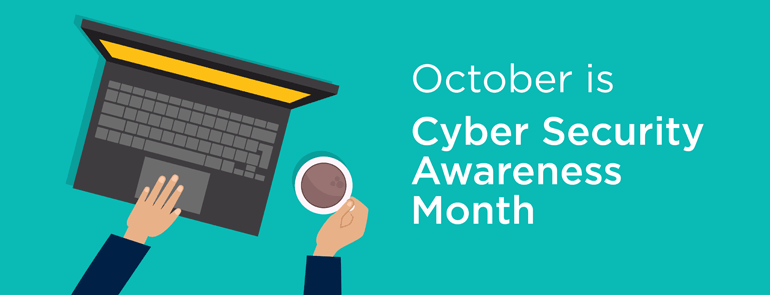AARP Hearing Center
The AARP Fraud Watch Network is:
- An Educator: Get real-time alerts about the latest scams, tips on how to spot them, and the inside scoop on how con artists think so you can outsmart them before they strike.
- A Watchdog: Our nationwide scam tracking map gives you access to a network of people who've spotted scams and the opportunity to pass along your own experiences, so together we can beat con artists at their own game.
- A Resource: Get connected to a real live person trained in how to avoid fraud and advise you if you or a loved one has been scammed by calling our fraud hotline or attending a forum in your community.
- Free for Everyone: Anyone, of any age, can access our resources at no cost.

SCAM ALERT #1: Cyber Security Awareness Month
As our lives become increasingly dependent on technology, more personal and business information is kept on internet-connected platforms, which can become a gold mine for criminals. October is National Cyber Security Month and AARP is joining federal law enforcement partners to encourage consumers to be cyber secure throughout their homes and businesses.
Here are some key steps. Create strong and unique passwords for all accounts (or use a password manager to do it for you). Opt-in to multi-factor authentication at every opportunity (where you receive a code on your device and share the code back to prove it’s you). Back up your data. Make sure all your devices are operating on the latest software. These steps are a good start to keep you cyber secure.

SCAM ALERT #2: Becky from Medicare
For the past few months thousands of robocalls have been hitting U.S. phone lines claiming to be “Becky, from Medicare.” And trust us, this is a conversation you’ll want to skip.
A target will receive a prerecorded call from “Becky from Medicare” and is asked to press 1 to talk to a representative to learn about free genetic testing. For those who interact with Becky (or one of her friendly colleagues), she’ll claim they are eligible for genetic testing to screen for diseases that Medicare will pay for. They will ask for the target’s Medicare number and mailing address to send a test kit with instructions.
This is a scam, pure and simple. All these crooks want is your Medicare number so they can bill Medicare for tests, devices – whatever their flavor of the day. These fraudulent charges cost Medicare billions each year.
To protect yourself – and save taxpayer dollars - only share your Medicare number with trusted health care providers; calls out of the blue for free resources from Medicare are scams – full stop.

SCAM ALERT #3: Smart Homes Need Smart Security
Smart homes can bring all of our systems, devices and even appliances online. If this is a route you’re taking, know that smart homes need smart security.
When setting up a new device, be sure to adjust the privacy and security settings. For any device that has a default password, change it, and do so again periodically. All of your passwords should be unique and complex. Avoid connecting your email or calendar to smart home devices, along with any other apps that store sensitive information. Also, set up each device so that any new software update uploads automatically. Updates often contain patches to protect against newly discovered vulnerabilities.

SCAM ALERT #4: Medicare Open Enrollment Scams
It’s open enrollment season, which also means it’s Medicare fraud season. Eligible beneficiaries have until December 7 to shop for the best deal for their health care dollar. Unfortunately, some of the deals out there won’t be deals at all.
Just like in other years, Medicare scams spike during open enrollment season with scammers posing as insurance providers calling and emailing about free gifts or limited time offers. These scams are designed to capture information to bill Medicare for bogus services and treatment.
Be suspicious of anyone who calls, emails or visits you promoting a Medicare plan. Legitimate health plans can only contact you if you’ve requested information. Don’t give personal information to anyone who calls or visits out of the blue and always review your Medicare summary notice or explanation of benefits statement for fraudulent charges.
Be a fraud fighter! If you can spot a scam, you can stop a scam.
The AARP Fraud Watch Network is a free resource for all. Learn how to proactively spot scams or get guidance if you’ve been targeted. Visit www.aarp.org/fraudwatchnetwork or call our dedicated helpline to speak to a fraud specialist at 1-877-908-3360.































































